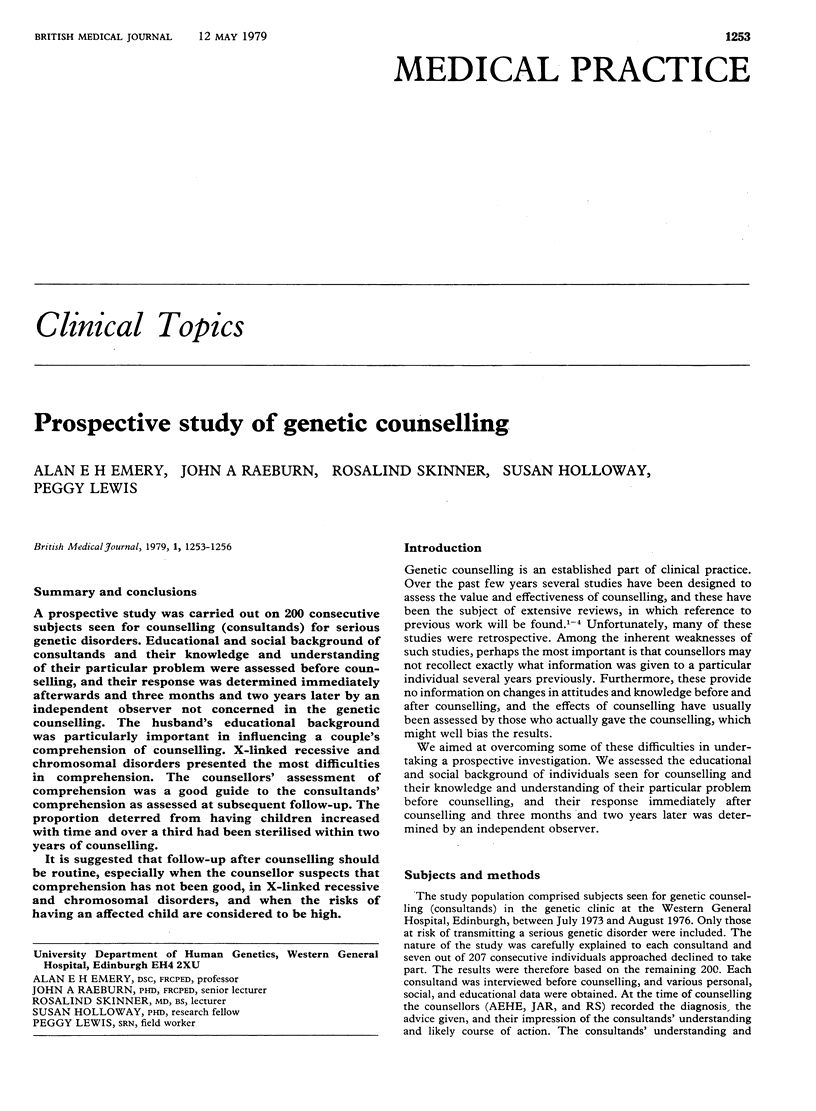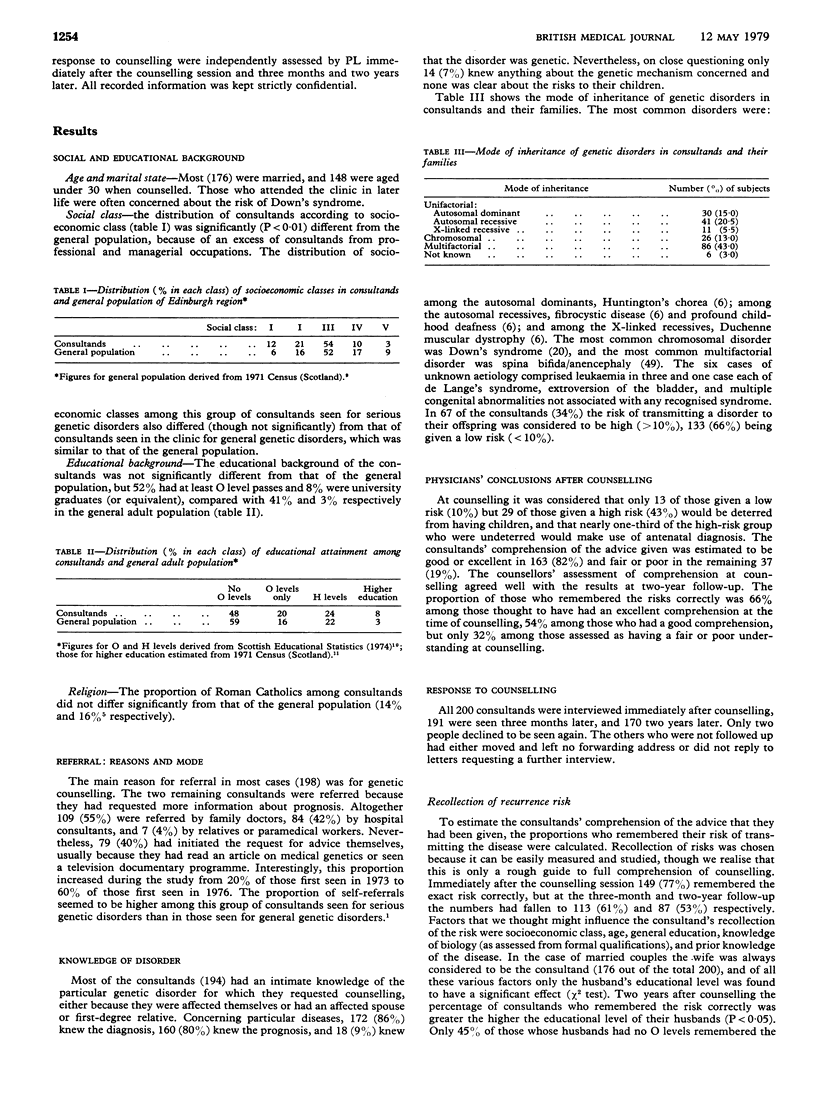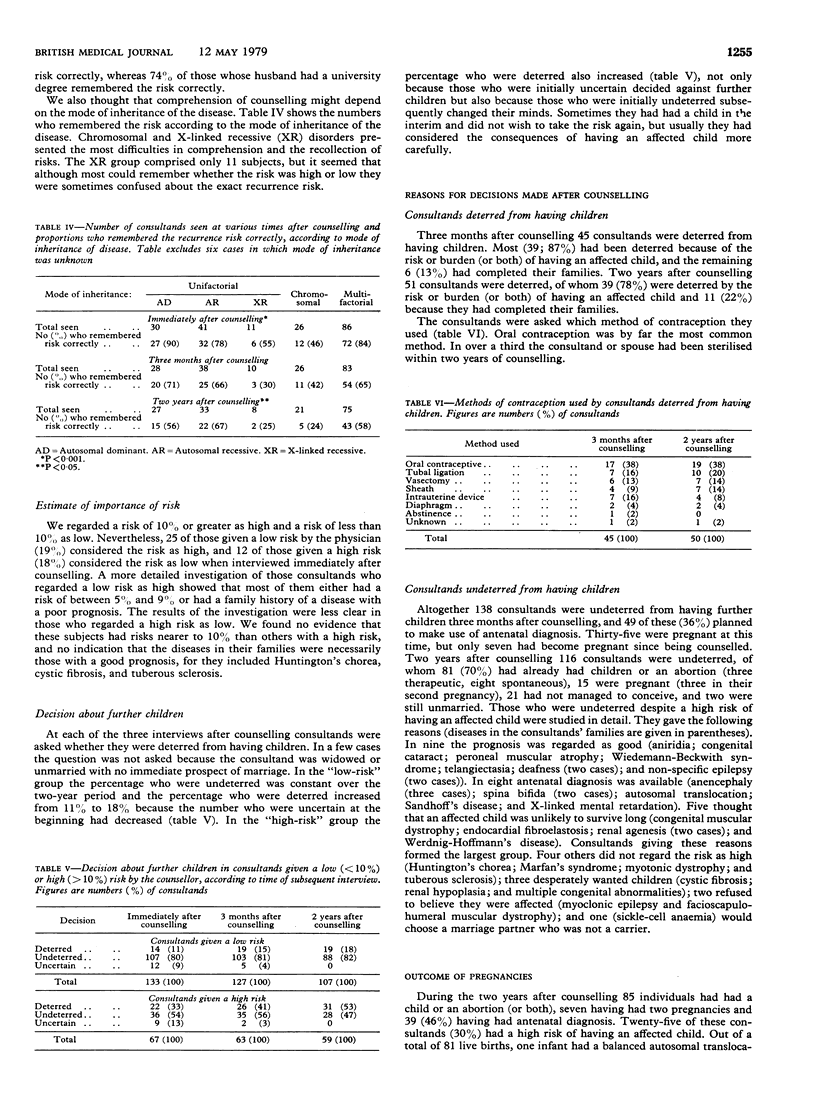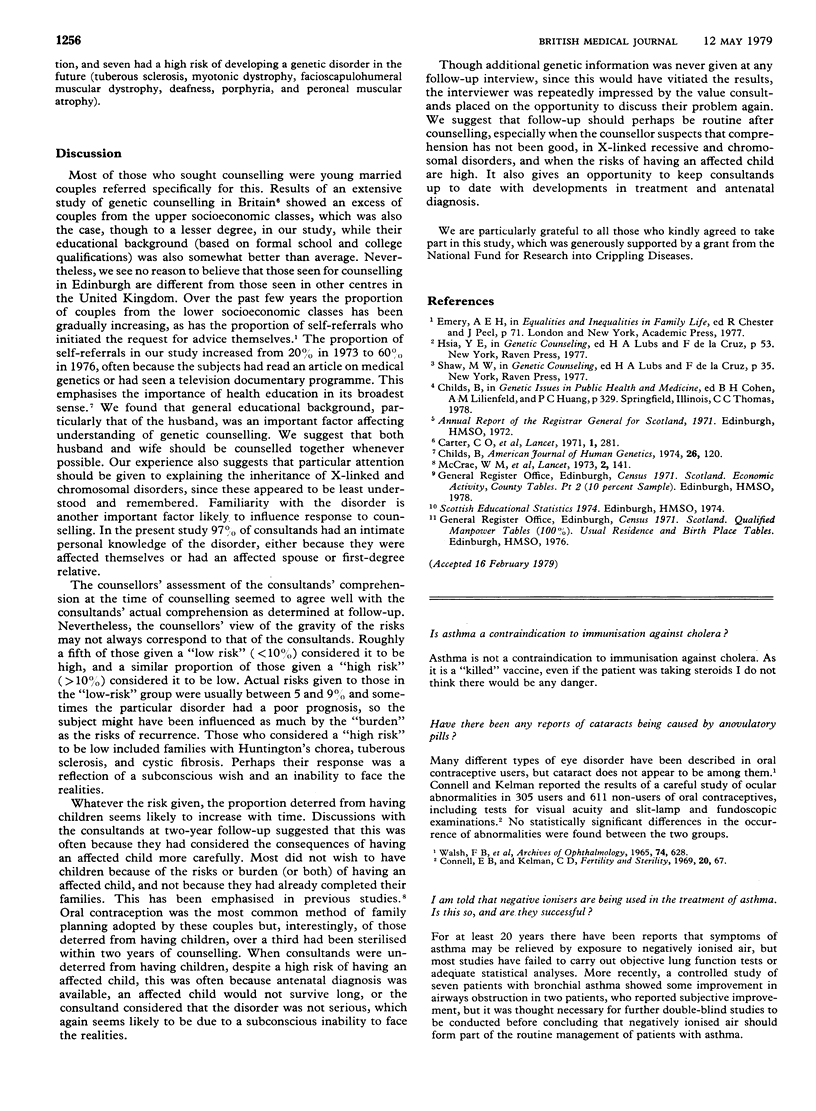Abstract
A prospective study was carried out on 200 consecutive subjects seen for counselling (consultands) for serious genetic disorders. Educational and social background of consultands and their knowledge and understanding of their particular problem were assessed before counselling, and their response was determined immediately afterwards and three months and two years later by an independent observer not concerned in the genetic counselling. The husband's educational background was particularly important in influencing a couple's comprehension of counselling. X-linked recessive and chromosomal disorders presented the most difficulties in comprehension. The counsellors' assessment of comprehension was a good guide to the consultands' comprehension as assessed at subsequent follow-up. The proportion deterred from having children increased with time and over a third had been sterilised within two years of counselling. It is suggested that follow-up after counselling should be routine, especially when the counsellor suspects that comprehension has not been good, in X-linked recessive and chromosomal disorders, and when the risks of having an affected child are considered to be high.
Full text
PDF



Selected References
These references are in PubMed. This may not be the complete list of references from this article.
- Carter C. O., Roberts J. A., Evans K. A., Buck A. R. Genetic clinic. A follow-up. Lancet. 1971 Feb 6;1(7693):281–285. doi: 10.1016/s0140-6736(71)91016-6. [DOI] [PubMed] [Google Scholar]
- Connell E. B., Kelman C. D. Eye examinations in patients taking oral contraceptives. Fertil Steril. 1969 Jan-Feb;20(1):67–74. doi: 10.1016/s0015-0282(16)36906-0. [DOI] [PubMed] [Google Scholar]
- McCrae W. M., Cull A. M., Burton L., Dodge J. Cystic fibrosis: parents' response to the genetic basis of the disease. Lancet. 1973 Jul 21;2(7821):141–143. doi: 10.1016/s0140-6736(73)93078-x. [DOI] [PubMed] [Google Scholar]


